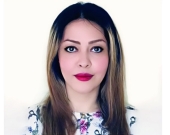Peace at Home; Peace abroad

By David L. Phillips°
Turkey announced an investment of $14.2 billion between now and 2028 in the Southeastern Anatolia Development Project (GAP). It expects the project will not only raise incomes and employment in Turkey’s Southeast, which is dominated by Kurds. It also hopes the investment will catalyze peace with the Kurdistan Work’s Party. This hope is misplaced unless Turkey’s investment in infrastructure includes political and cultural reforms. Peace is not a commodity that can be bought. Conditions for peace would be enhanced through “Disarmament, Demobilization and Reintegration (DDR)” including amnesty for Kurds who renounce political violence.
GAP is not a new initiative. In the 1990s, the Turkish government invested large sums in infrastructure and rural industries in the Southeast. But GAP failed as a tool for peacebuilding. It was ill-timed and poorly executed.
Moreover, the authorities mistakenly believed that Kurds could be influenced with financial incentives. They failed to understand that Kurds supported the PKK for defending their dignity against abuses by the Turkish state.
DDR is an innovation that could end the Kurdish conflict, which has killed 40,000 people since 1985. DDR contributes to security by removing weapons from the hands of combatants, disbanding informal military structures, and helping fighters integrate socially and economically into society. Turning weapons into plowshares requires a commitment from both the Turkish government and the PKK to abandon violent conflict and pursue their goals through negotiations.
Disarmament is at the core of DDR. It involves the collection, documentation, control, and disposal of light and heavy weapons. Demobilization requires the removal of active combatants from armed groups.
Reintegration is the process by which ex-combatants acquire civilian status and gain sustainable employment and livelihoods during the post-conflict recovery period. Reintegration addresses social and economic issues, making them stakeholders in peace. More roads, hospitals and schools will improve the quality of life. Linking GAP to peacebuilding could be a critical part of the project.
DDR does not occur in a vacuum. It is usually defined within a ceasefire or peace accord, providing a political and legal framework for peacebuilding. It is not announced unilaterally or imposed by the victor on the vanquished. DDR will likely fail as a top-down government initiative, lacking coordination with local officials and directly affected communities. Concepts of ‘community-centered’ reintegration offer an alternative model, linking the needs of ex-combatants and victims with the needs of communities as a whole. Victims and victimized communities must have a stake in DDR.
DDR alone cannot build peace, nor can it prevent armed groups from reverting to violence. DDR needs to be implemented as part of a comprehensive strategy for peacebuilding and reconstruction, including elements of security sector reform, political and justice reform, transitional justice, and amnesty arrangements.
It can also be tied to a truth-telling process whereby security officials and combatants admit their wrong-doing. Whereby a ceasefire agreement occurs on a specific date, peacebuilding is a process not an event. It involves a multiplicity of actors.
What happens in Syria impacts events in Turkey and vice-versa. Many Kurds are part of extended families present on both sides of the border. Kurmanji is a common language.
President Tayyip Erdogan believes that the Syrian Democratic Forces (SDF), a pro-Western militia made up of Syrian Kurds and moderate Arab Sunnis, is a terror group and threatens to “annihilate” them. It is true that the SDF is inspired by principles of Abdullah Ocalan, the PKK’s founder, such as grass-roots democracy, women’s emancipation, and environmental justice. However, they are separate organizations with different leadership structures. Conflating them is a manifestation of Turkey’s Kurdish-phobia, which Erdogan uses to rally his nationalist base.
Sustainable peace requires similar solutions in both Turkey and Syria. Democratic development and decentralization would advance a solution.
The international community can play a helpful role. Turkey’s EU membership bid was suspended by the European parliament (EP) in 2019 because of democratic backsliding. Membership negotiations could resume if Turkey stopped repressing Kurdish cultural and political rights. An agreement that provides amnesty for the PKK, could kick-start talks on Turkey’s EU accession.
Turkey should dedicate itself to restoring good relations with NATO, which sets democratic standards. Canceling its purchase of S400 missiles from Russia would be well-received in Washington. Turkey’s future lies with the West not in Eurasia.
In exchange for genuine and verifiable reform, the US and EU could lift sanctions and normalize military-to-military relations.
Progress will flow from Turkey’s decision to embrace the spirit of reconciliation with the Kurds. The overthrow of Bashar al-Assad marks a watershed moment. Erdogan can pursue victor’s justice, which would further alienate Turkey from Euro-Atlantic institutions, or he can like a statesman and pursue a path of reconciliation.
There is nothing in Erdogan’s temperament or track record to suggest accommodation. But diplomacy and incentives are worth a try. Leadership links national interests with the greater good. Both Erdogan’s legacy and Turkey’s interests would be well-served through Kurdish progress at home and in the region.
°David L. Phillips is an adjunct professor at Georgetown University’s Security Studies Program.

 Gulan Media
Gulan Media









